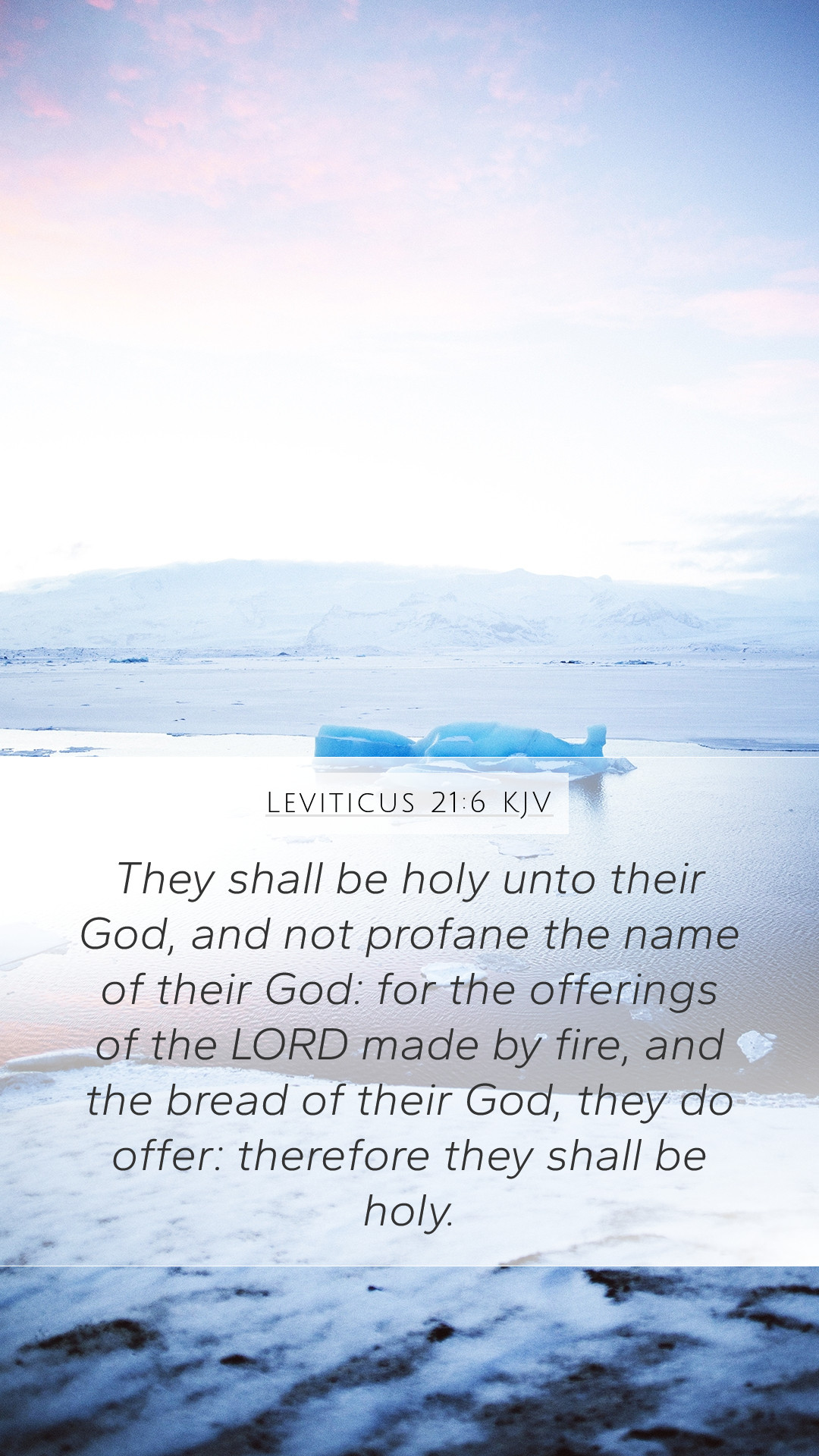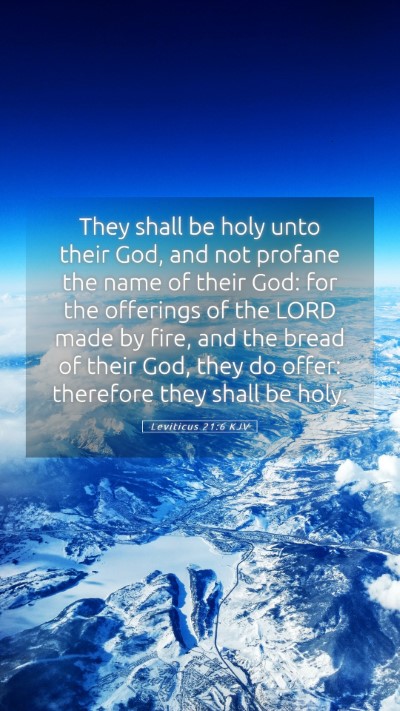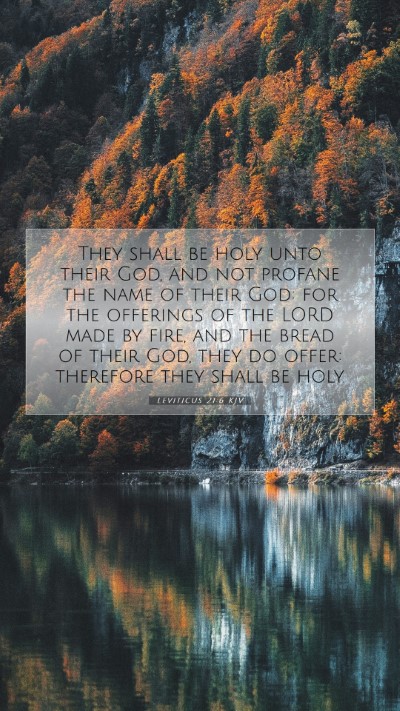Understanding Leviticus 21:6
Verse: "They shall be holy unto their God, and not profane the name of their God: for the offerings of the Lord made by fire, and the bread of their God, they do offer: therefore they shall be holy." (Leviticus 21:6)
Introduction: This verse from Leviticus outlines the significance of holiness among the priests of Israel. It emphasizes the importance of maintaining purity in both their personal lives and in their service to God. In examining this passage, we can draw insightful commentary from respected theologians such as Matthew Henry, Albert Barnes, and Adam Clarke.
Bible Verse Explanations
The meaning of Bible verses, particularly in the Old Testament, often requires a contextual understanding of ceremonial laws and the role of priests. Leviticus 21:6 addresses the priests directly, highlighting their unique calling and responsibilities.
Commentary Insights
- Matthew Henry:
Henry points out that this command reflects the high standards to which the priests were called. Their holiness was not only for their sake but for the sake of the entire community. By being holy, they exemplified what it means to be set apart for God's service. The idea of "not profaning the name of their God" underscores the gravity of their responsibilities as mediators between God and the people.
- Albert Barnes:
Barnes emphasizes that the priests’ duties included offering sacrifices and bread to God, which required a state of ceremonial purity. He notes that their personal conduct should align with their sacred duties, as their actions had spiritual ramifications for the entire nation. Holiness in service therefore becomes a crucial aspect of their priesthood.
- Adam Clarke:
Clarke elaborates on the notion of being "holy unto their God." He interprets this as a call to live lives that reflect God's nature. For Clarke, the holiness of the priests serves as a prototype for all believers, calling them to live in a way that honors God’s name in every aspect of life, ensuring that they do not bring disrepute upon His name.
Key Themes
- Holiness:
The emphasis on holiness highlights the expectation of moral and spiritual integrity among those who serve in sacred roles. It signifies a life dedicated to God and separated from worldly defilements.
- Worship:
The priests’ offerings represented not just rituals, but expressions of profound reverence. Their lives were to be living testimonies of God's majesty and grace.
- Representation:
The priests served as representatives of the people before God. Their holiness was critical in maintaining a right relationship between God and Israel, as they facilitated access to divine presence through sacrifice.
Application of the Verse
When looking at the application of Leviticus 21:6 for modern believers, the call to holiness remains relevant. It encourages individuals to pursue a life that reflects biblical principles and to recognize the weight of their testimony in the world. This aligns with broader themes found throughout Scripture, urging believers to uphold God's name in their actions and relationships.
Cross References
- Exodus 19:6: "And you shall be to me a kingdom of priests and a holy nation." - This verse underscores the communal calling to holiness.
- 1 Peter 1:15-16: "But as he who called you is holy, you also be holy in all your conduct." - Links the call to holiness in the New Testament.
- Romans 12:1: "I appeal to you therefore, brothers, by the mercies of God, to present your bodies as a living sacrifice, holy and acceptable to God." - Emphasizes the personal responsibility of believers to embody holiness.
Conclusion
Leviticus 21:6 serves as a crucial reminder of the holiness that God requires of those who serve Him. Through careful study and reflection on this verse and others, readers can gain deeper insights into the principles of holiness that underline both priestly duties in the Old Testament and their applications in contemporary Christian life. Engaging with Bible study groups or online Bible study resources can further enhance one's understanding and help in applying these biblical principles of holiness to daily life.
Note: For those seeking Bible verse interpretations or looking to explore the nuanced meanings of significant biblical texts, this verse exemplifies the depth of God's expectations and how they transcend time, encouraging a personal pursuit of holiness among all believers.


